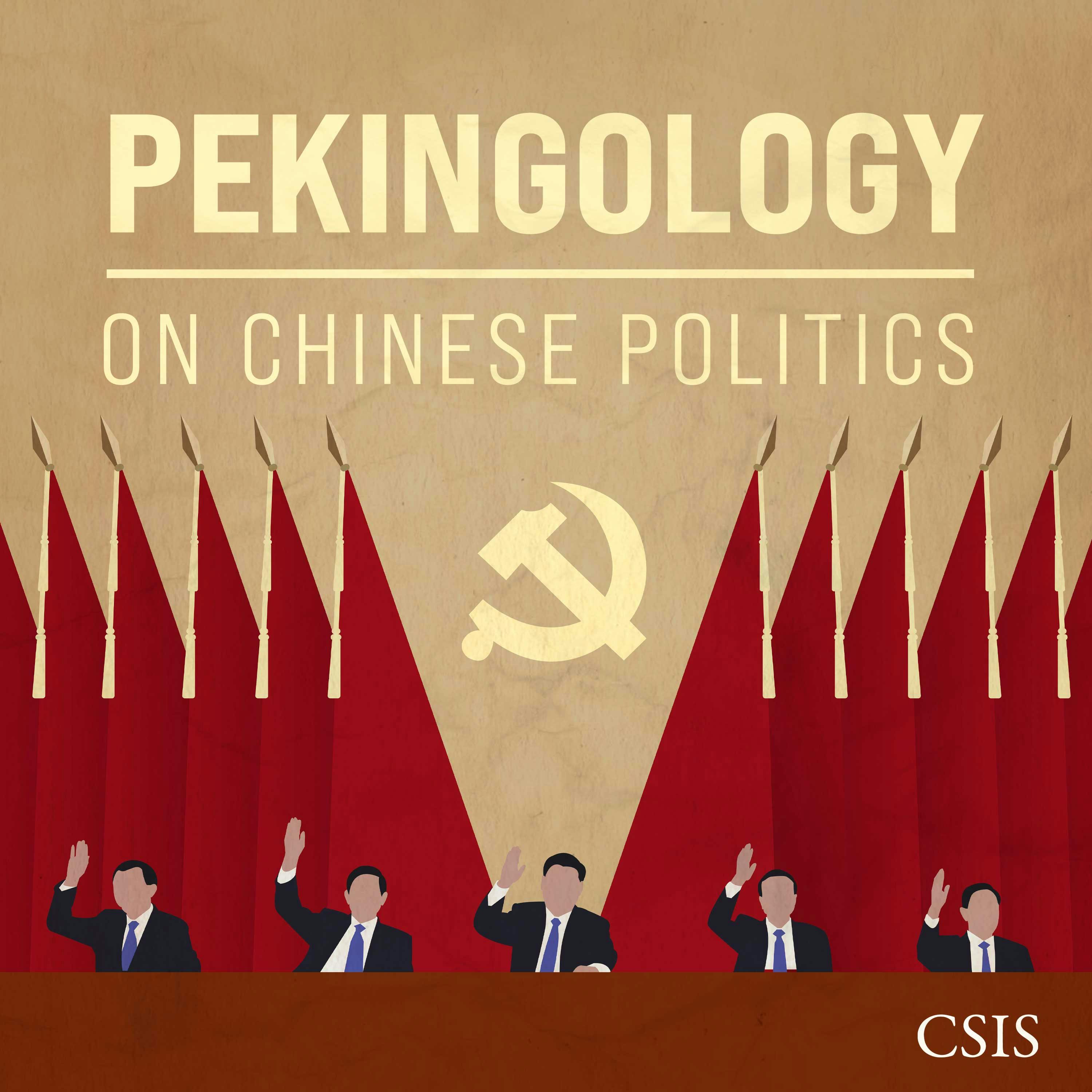

Pekingology
Center for Strategic and International Studies
China is one of the 21st century’s most consequential nations, and it has never been more important to understand how the country is governed. Pekingology is the podcast that unpacks Chinese politics, the inner workings of the Communist Party, and how China's domestic and foreign policy will impact the world. Pekingology is hosted by Henrietta Levin, Senior Fellow with the Freeman Chair in China Studies at CSIS. It is produced by Gina Kim.
Episodes
Mentioned books

May 1, 2025 • 44min
China Across CSIS: Communication Amid Competition with Chen Dongxiao
Chen Dongxiao, President of the Shanghai Institutes for International Studies, shares his insights on China's rising role in global politics. He discusses the evolving dynamics of U.S.-China relations, particularly under the Biden administration, emphasizing the competitive but necessary dialogue needed for cooperation. Dongxiao also highlights the pivotal role of think tanks in shaping these relations, advocating for more creative approaches to global challenges through track-2 dialogues. His candid reflections offer a unique perspective on the complexities of international diplomacy.

11 snips
Apr 17, 2025 • 20min
China Across CSIS: China Weathers the Storm of U.S. Tariffs
In this special episode from The Truth of the Matter from CSIS, host Andrew Schwartz speaks with Scott Kennedy, CSIS senior adviser and Trustee Chair in Chinese Business and Economics, to discuss the latest in the U.S.-China trade war, including China’s technological capabilities, new export controls, and the possibility of future decoupling.Original interview published on April 17, 2025.

11 snips
Apr 3, 2025 • 36min
Dictatorship and Information
Martin K. Dimitrov, a political science professor at Tulane University and expert on authoritarianism, shares fascinating insights from his work on dictatorship and information. He reflects on his Bulgarian childhood during communism and how personal experiences shape views on repressive regimes. The discussion dives into how authoritarian leaders grapple with controlling information, the balance between public sentiment and propaganda, and strategies from Eastern European communist regimes to maintain compliance. Dimitrov's analysis reveals the intricate dynamics of authoritarian resilience, particularly in China.

Mar 13, 2025 • 36min
Why Does the CCP Need a Core?
Xuezhi Guo, the Lincoln Financial Professor of Political Science at Guilford College and author of 'The Politics of the Core Leader in China,' dives into the evolution of China's political leadership. He discusses the crucial shift under Xi Jinping from collective leadership to concentrated power, linking it to historical practices of core leadership. Guo highlights how Confucianism and Legalism have shaped governance while elucidating the balance needed between strongmen and collective rule. The conversation also explores the implications for the future of China's political landscape.

18 snips
Feb 27, 2025 • 50min
Coalitions of the Weak
Victor Shih, an associate professor at UC San Diego, delves into the intricate elite politics of China, drawing from his insights in elite political strategies. He intriguingly discusses the delicate balance dictators maintain to avoid empowering capable deputies too much, and the shifts in power dynamics post-Mao. Shih also examines how Mao’s 'coalitions of the weak' contrast with Deng's approach and highlights the struggles of 1990s princelings, particularly how Xi Jinping's rise reflects these evolving strategies amid complex internal and geopolitical challenges.

17 snips
Feb 13, 2025 • 40min
How the CCP Finances its Global Ambitions
Zongyuan Zoe Liu, a Fellow for international political economy at the Council on Foreign Relations and author of 'Sovereign Funds,' discusses the intricate ways the Communist Party of China finances its global ambitions. She unpacks the evolution of sovereign wealth funds, using examples from Kuwait to Norway, and illustrates China’s unique approach shaped by political and economic strategies. Liu also dives into Central Huijin’s role in banking reforms and examines how Chinese sovereign funds navigate international partnerships, especially in the face of geopolitical tensions.

12 snips
Jan 30, 2025 • 33min
Outsourcing Repression
Dr. Lynette H. Ong, a Political Science Professor at the University of Toronto, discusses her book on state repression in contemporary China. She reflects on her nearly decade-long field research amid heavy political restrictions. Key topics include the role of community members in enforcing compliance, the troubling consequences of urban development, and the decline of trust during China's zero COVID policy. Ong's insights reveal the intricate dynamics of everyday governance and the darker side of China's rapid economic growth.

6 snips
Jan 16, 2025 • 32min
What Happens if Xi Jinping Dies in Office?
In a captivating discussion, Erica Frantz, an Assistant Professor at Michigan State University and expert on authoritarian politics, explores the potential consequences if Xi Jinping dies in office. They delve into the complexities of leadership succession in authoritarian systems, revealing how a lack of proper planning can lead to instability. Historical examples illustrate that while many regimes endure post-leader death, significant political change is rare. Frantz also examines the current dynamics in China, emphasizing the impact of centralized power on governance.

24 snips
Jan 3, 2025 • 38min
Overcoming the Emperor's Dilemma
In this engaging discussion, Wang Yuhua, an expert in state building at Harvard, dives into the intricate dynamics of political power in Imperial China. He explores how authoritarian regimes maintain stability and the lessons they offer for modern governance. The conversation highlights the resilience of meritocratic bureaucracy and critiques conventional views on state development. Wang also examines the impact of COVID-19 on Xi Jinping's rule, drawing fascinating parallels with historical governance, all while advocating for a broader understanding of diverse political systems.

16 snips
Dec 12, 2024 • 44min
Fragmented Authoritarianism in Xi's China
Jessica Teets, a Professor at Middlebury College and Editor-in-Chief of the Journal of Chinese Political Science, dives into the complexities of China's governance under Xi Jinping. She discusses the concept of fragmented authoritarianism and its implications for local governance. Teets highlights the central government's increasing control, the struggles local officials face, and the impacts of digitization. The conversation also touches on how Xi's centralization efforts affect policymaking and what this means for China's future amid ongoing reforms.


